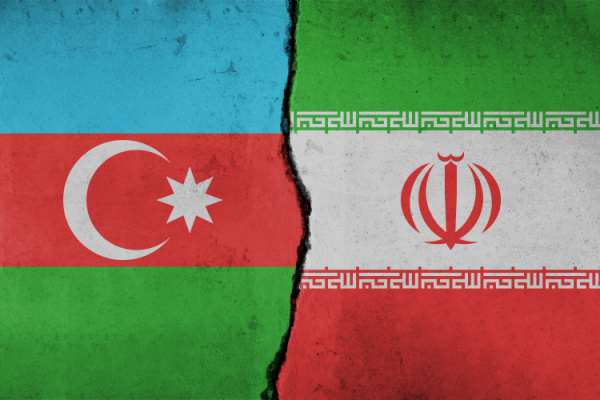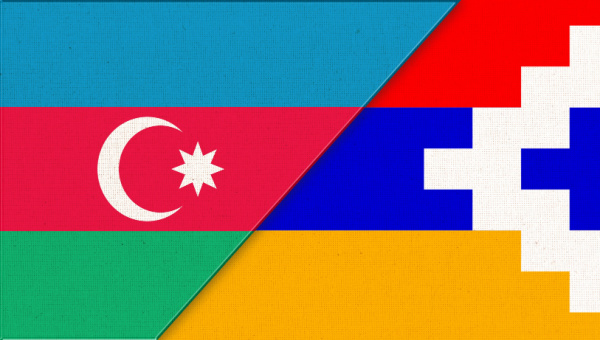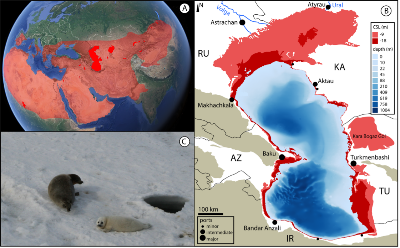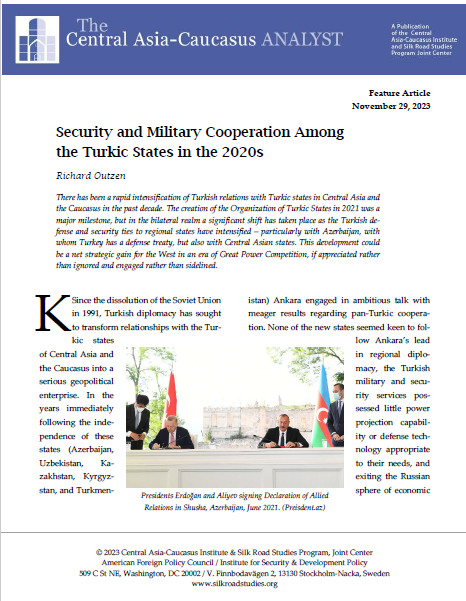Is the Aras Corridor an Alternative to Zangezur?
By Vali Kaleji
February 5, 2024
Iran and Azerbaijan recently agreed to establish a transit route called the “Aras Corridor.” It is intended to pass through the Iranian province of East Azerbaijan and connect the village of Aghband in the southwestern corner of the Zangilan District to the city of Ordubad in southern Nakhchivan. Bypassing Armenia, the Aras Corridor could present an alternative to the Zangezur Corridor with the potential of reducing Iran’s concerns for its common border with Armenia. However, if Armenia and Azerbaijan sign a peace treaty and Armenia and Turkey establish diplomatic relations, the current advantages of the Aras Corridor will be reduced. These equations will change only if Nikol Pashinyan’s government falls and the nationalist and conservative movements opposing peace with Azerbaijan and normalization of relations with Turkey come to power in Armenia.

Security and Military Cooperation Among the Turkic States in the 2020s
Richard Outzen
December 8, 2023
There has been a rapid intensification of Turkish relations with Turkic states in Central Asia and the Caucasus in the past decade. The creation of the Organization of Turkic States in 2021 was a major milestone, but in the bilateral realm a significant shift has taken place as the Turkish defense and security ties to regional states have intensified – particularly with Azerbaijan, with whom Turkey has a defense treaty, but also with Central Asian states. This development could be a net strategic gain for the West in an era of Great Power Competition, if appreciated rather than ignored and engaged rather than sidelined.
Armenia’s Crisis After Azerbaijan's Final Offensive in Nagorno-Karabakh
By Natalia Konarzewska
November 9, 2023
Armenia was hit by a political and humanitarian crisis after Azerbaijan launched a massive military offensive in Nagorno-Karabakh on September, aimed at disbanding its de facto government and armed forces. Yerevan’s refusal to provide military assistance to the separatist region fueled massive protests across Armenia in support of Karabakh Armenians and against Prime Minister Nikol Pashinyan. Simultaneously, relations between Armenia and Russia reached a new low amid Yerevan’s assertion that Moscow failed to live up to its security commitments in the region. As a result of Nagorno-Karabakh’s capitulation on September 20, tens of thousands of Armenian refugees fled the region.

A New Spring for Caspian Transit and Trade
Svante E. Cornell and Brenda Shaffer
October 17, 2023
Major recent shifts, starting with the Taliban victory in Afghanistan and Russia’s war in Ukraine have led to a resurgence of the Trans-Caspian transportation corridor. This corridor, envisioned in the 1990s, has been slow to come to fruition, but has now suddenly found much- needed support. The obstacles to a rapid expansion of the corridor’s capacity are nevertheless considerable, given the underinvestment in its capacity over many years.

Decreasing Water Levels in the Caspian Sea: Causes and Implications
By Vali Kaleji
October 13, 2023
Various reports indicate that the water level of the Caspian Sea has decreased by one meter in recent years and could drop by 9 to 18 meters (30 to 59 feet) by the end of the 21st century. Although climate change contributes to this process, Russia’s construction of dams on the Volga River has played an important role in reducing the amount of water entering the Caspian Sea. This will have significant and serious implications, including a decline of the sea water level, a considerable retreat of the sea and increase of the land and coastal area especially in upstream countries (Russia and Kazakhstan), challenges to the operation of ports and shipping, as well as environmental consequences, particularly the drying of protected areas and wetlands.




